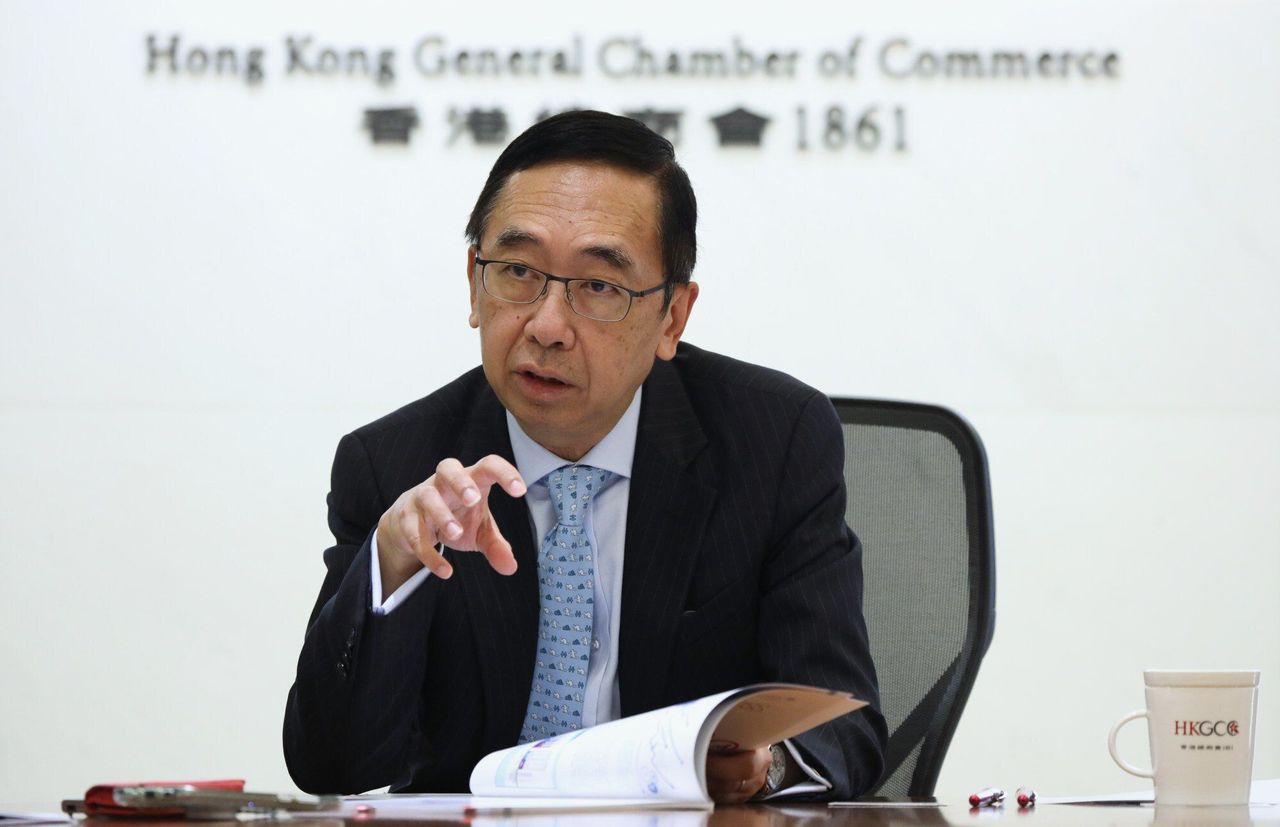
Hong Kong’s largest business lobby predicts further growth in 2022
Hong Kong’s largest business association expects the city’s economic recovery will continue into next year and predicts 2.8 per cent growth in gross domestic product, but warns the unfolding Omicron variant of the coronavirus presents fresh uncertainties.
George Leung Siu-kay, CEO of the 4,000-member Hong Kong General Chamber of Commerce, said on Thursday it was difficult to tell how the heavily mutated variant would impact the economy. The organisation expected the city’s GDP would grow 6.3 per cent this year, close to the government’s forecast of 6.4 per cent, which would be highest since 2005 when 6.9 per cent expansion was recorded in 2005.
“Even the World Health Organization is unable to tell how rapidly Omicron will spread around the world and its mortality rate. So we will be watching closely in case the spread is quite severe and causes many countries’ borders to close down, then I think there’s a need to revise our economic forecast,” he said.
 George Leung, chief executive officer of the Hong Kong General Chamber of Commerce.
George Leung, chief executive officer of the Hong Kong General Chamber of Commerce.
Leung added that it was still unclear how cross- border travel would be affected, as Omicron was new. But he conceded the variant could take a further toll on Hong Kong’s already battered tourism and hospitality sectors given the city remained in near lockdown for the past 22 months.
The variant has caused countries like Japan, Israel, the United Kingdom, European Union and the United States to ban foreigners from entering. Non-residents from eight African countries are banned from coming to Hong Kong. The city has confirmed four Omicron cases so far.
Still, Hong Kong and Guangdong governments last week reached a deal to resume quarantine-free travel as soon as possible.
“[The mainland] is our biggest trading partner,” Leung said. “If our border can be resumed, there’s a lot of activities that can be resumed with the mainland … but we need to wait for quite a while, so that’s why we are not expecting a full resumption of economic flow in 2022.”
He revealed the findings of a survey the chamber conducted in July, which pointed to restricted cross-border travel remaining the top concern of businesses.
In another survey by the British Chamber of Commerce in Hong Kong involving 152 respondents, or 15 per cent of its membership, companies said the city’s strict quarantine measures had caused challenges in maintaining headcount.
Almost half said some employees had decided to leave the company or Hong Kong altogether due to the quarantine restrictions, according to the survey conducted in October.
Almost 70 per cent said the current Covid-19 measures had affected talent acquisition and limited business growth, while more than half said they might relocate operations or lose employees if the current restrictions continued for another 12 months.
“The current situation is presenting real challenges. We understand the constraints that the Hong Kong government is under, but would urge it to explore other options that would allow an earlier relaxation of international travel,” said David Graham, executive director of BritCham.











